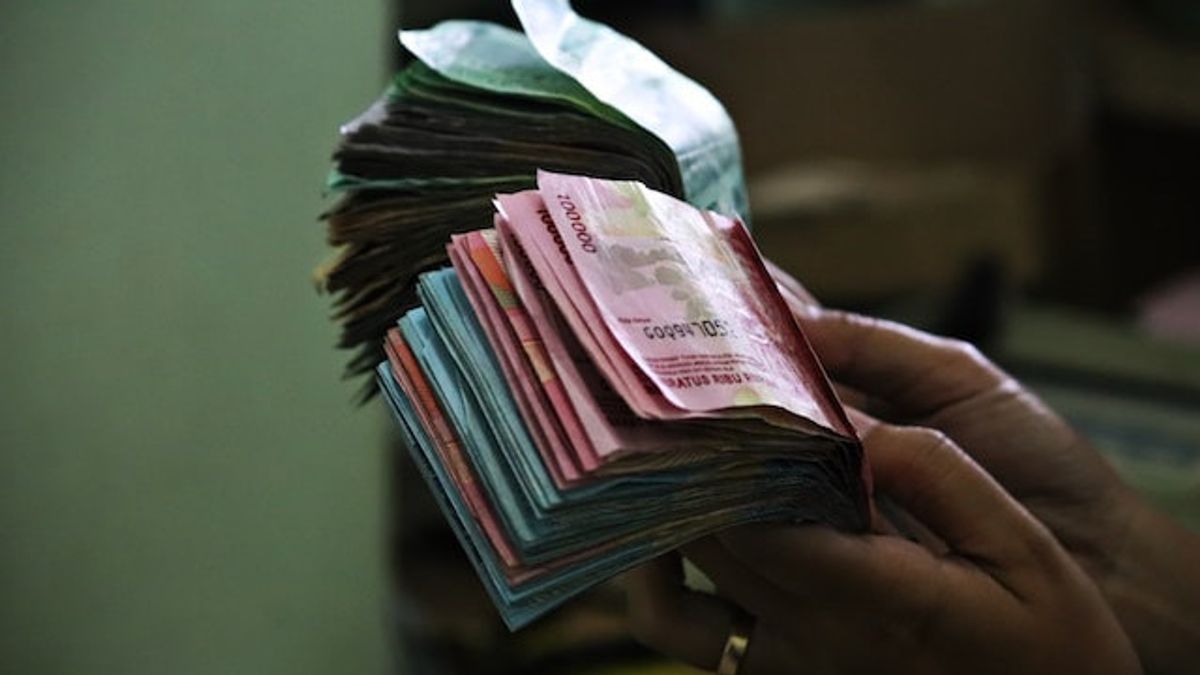JAKARTA The rate of increase in the provincial minimum wage (UMP) is considered by economic observers to be still far ideal and at risk of eroded purchasing power. In fact, if workers' wages can rise higher, it will have an impact on regional income as well.
The local government in Indonesia has announced an increase in the 2024 UMP on Tuesday (11/11/2023). However, according to the Minister of Manpower Ida Fauziyah, only 30 governors have set the UMP in their respective regions.
Based on the announcement of the increase in wages last night, DKI Jakarta is still the province with the highest UMP, which is IDR 5,067,3381, although it has only increased 3.8 percent from the previous IDR 4,900,798.
North Maluku experienced the highest increase among other provinces, namely 7.5 percent from Rp2,976,720 to Rp3,200,000. Meanwhile, the province with the least percentage increase was Gorontalo, which only rose 1.19 percent Rp2,989,350 to Rp3,025,100.
Bahana Sekuritas economist Putera Satria Sambijantoro said the increase in the 2024 UMP was much smaller than last year's increase which averaged 7.5 percent. Even in the middle of the political year, regional heads still stick to the central government's decision in accordance with the Job Creation Act.
For the business world, this increase will lead to a more conducive investment climate amidst political year uncertainty. For workers, the impact will be minimal on purchasing power and welfare. For the central bank, the effect of inflation from wage increases is minimal," explained Satria.
Meanwhile, Executive Director of the Center of Economic and Law Studies (CELIOS) Bhima Yudhistira said the 2024 UMP increase was still too low. He is worried that this too low increase could threaten economic growth next year.
According to Bhima, the ideal UMP increase is above 10 percent. With the increase in the UMP in each region an average of less than 5 percent, he predicts it will be difficult to deal with inflation next year.
"This is still too small and very disappointing. The 2024 UMP with too low increases could threaten economic growth next year," Bhima told VOI.
If the wage increases below 5 percent, which workers can face inflation. Ideally, above 10 percent see the pressure of food inflation which is quite risky to erode purchasing power," said Bhima, adding.
Bhima also regretted that the local government did not reject the minimum wage formula which was too low because it referred to the Job Creation Law. Especially for the DKI Jakarta Regional Government, which according to him has special authority compared to other regions related to wage determination.
According to Bhima, the Acting Governor of DKI Jakarta, Heru Budi Hartono should have been able to use Article 26 of the DKI Law to formulate an increase in the UMP, instead of referring to the Job Creation Law.
"As long as Article 26 of the DKI Law can still provide space for regulating industry and trade, where wages are components that cannot be separated from economic policies, the Acting Governor of DKI can take advantage of the regulation," he said.
"So there is no need to refer to the Job Creation Law regarding wage formulation. If it can be better than the results of the Job Creation Law formula, why not?" Bhima added.
اقرأ أيضا:
Heru Budi's decision to choose to use Government Regulation Number 51 of 2023 concerning Wages is not without reason. Bhima indicated that the Acting Governor of DKI was worried that entrepreneurs would be sued like what happened to Anies Baswedan in the past.
In fact, a higher wage increase has the potential to have a positive impact on regional income.
"With wages rising higher, economic turnover is also increasing, spending is increasing and has an impact on regional income," he said.
The increase in the UMP is said to be directly proportional to people's purchasing power. But when the increase in the UMP is still far from expectations, it will also affect purchasing power, even leading to weak economic growth next year.
The increase in the UMP, which averages only about 5 percent in each region, is said to be only suitable to cover 2024 inflation, which is predicted to be 1.5 percent to 3.5 percent.
"This means that public income will not encourage the increase in consumption, because 3 percent have eaten inflation, so it's not enough," said Executive Director of the Institute for Development of Economics and Finance (Indef) Tauhid Ahmad.
Tauhid added that the biggest inflationary pressure was in terms of food prices, especially rice. The increase in rice prices, which has been happening in recent months, was also influenced by El Nino's prolonged effect and the postponement of the first planting season which should have occurred in August-December 2023.
Seeing this phenomenon, Tauhid predicts that inflationary pressure will still be high in the first half of 2024 so that the increase in the UMP which is considered not ideal will only run out to pay the pressure on rice prices.
"So until January-February inflation is still higher, especially rice, because we know that delay from production until February will result in inflation being a bit vulnerable next year," said Tauhid.
The English, Chinese, Japanese, Arabic, and French versions are automatically generated by the AI. So there may still be inaccuracies in translating, please always see Indonesian as our main language. (system supported by DigitalSiber.id)














